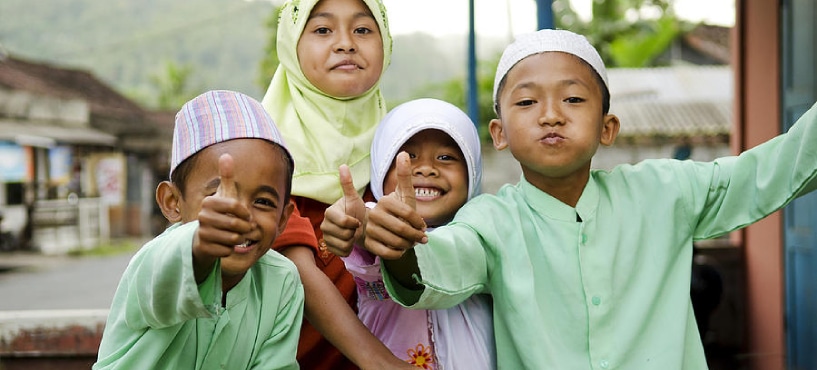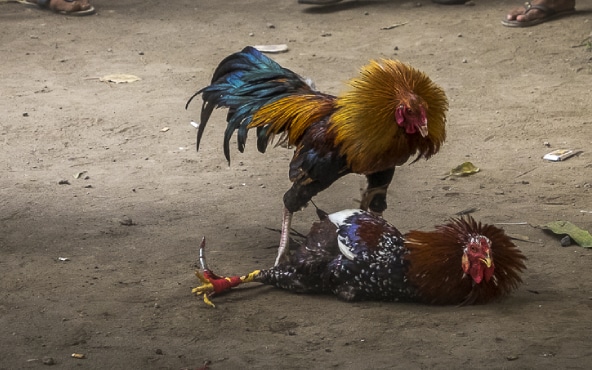Bali, the famed Indonesian island known for its predominantly Hindu culture and vibrant traditions, is also home to a diverse population that includes a significant number of Muslims. Despite being a minority, the Muslim community in Bali contributes to the island’s rich cultural tapestry. This article explores the history, cultural integration, and contemporary life of Muslims in Bali, highlighting their unique role in the island’s social fabric.
Introduction
Bali is often associated with its Hindu heritage, characterized by intricate temples, colorful ceremonies, and a deeply spiritual way of life. However, the island’s demographic landscape is more diverse than commonly perceived. Muslims, primarily of Javanese and Sasak descent, have lived in Bali for centuries, coexisting harmoniously with the Hindu majority. This article delves into the historical background, cultural integration, and current status of the Muslim community in Bali.
Historical Background
Early Settlements
The presence of Muslims in Bali dates back several centuries, influenced by trade, migration, and political dynamics within the Indonesian archipelago.
- Trade Routes: Muslim traders from Java and other parts of Indonesia, as well as from the Middle East, established early contact with Bali through trade routes. These interactions facilitated the spread of Islam to the island.
- Migrations: Over time, Muslim communities, particularly from neighboring Java and Lombok, migrated to Bali, bringing their religious practices and cultural traditions with them.
Integration with Balinese Society
The Muslim community in Bali has historically integrated well with the Hindu majority, maintaining their religious practices while also adopting aspects of Balinese culture.
- Intermarriage: Intermarriage between Muslims and Hindus has been relatively common, fostering social cohesion and mutual respect between the communities.
- Shared Cultural Practices: While maintaining their religious identity, many Muslims in Bali participate in local cultural practices and festivals, reflecting a blending of traditions.
Cultural and Religious Life
Religious Practices
Muslims in Bali practice their faith through regular prayers, fasting during Ramadan, and other Islamic rituals, while also respecting the predominant Hindu culture around them.
- Mosques: There are numerous mosques across Bali, with prominent ones in Denpasar, Kuta, and other urban areas. These serve as centers for worship, community gatherings, and religious education.
- Ramadan and Eid: During Ramadan, Muslims in Bali fast and engage in communal prayers, culminating in the celebration of Eid al-Fitr with feasts and community activities.
Cultural Integration
Despite religious differences, Muslims in Bali often engage in local customs and participate in Balinese cultural events, contributing to a harmonious coexistence.
- Ceremonial Participation: Muslims often join in Balinese ceremonies and festivals, either as spectators or participants, showing respect for the local traditions.
- Language and Dress: Many Muslims in Bali speak Balinese and Indonesian, and traditional Balinese attire is sometimes worn alongside Muslim garments, reflecting cultural integration.
Contemporary Life
Demographics
Muslims make up about 13% of Bali’s population, with communities concentrated in urban areas and certain rural regions.
- Urban Centers: Denpasar, the capital of Bali, has a significant Muslim population, along with other urban areas like Kuta and Singaraja.
- Rural Areas: Some rural regions, particularly in the western part of Bali, have notable Muslim communities, often living alongside Hindu neighbors.
Economic Contributions
Muslims in Bali contribute to the island’s economy through various sectors, including trade, agriculture, and tourism.
- Businesses: Many Muslim-owned businesses, ranging from restaurants to retail shops, cater to both locals and tourists, enriching Bali’s commercial landscape.
- Tourism: Halal tourism is an emerging sector, with some businesses offering services that cater specifically to Muslim tourists, enhancing Bali’s appeal as a destination for diverse visitors.
Education and Social Services
The Muslim community in Bali places a strong emphasis on education and social welfare, contributing to the island’s overall development.
- Islamic Schools: There are several Islamic schools and madrasas in Bali, providing religious and secular education to Muslim children.
- Community Services: Muslim organizations often engage in charitable activities, providing social services and support to those in need, regardless of their religious background.
Challenges and Opportunities
Challenges
Despite the generally harmonious coexistence, Muslims in Bali face certain challenges, particularly related to religious practices and cultural preservation.
- Religious Tensions: Occasional tensions arise from differences in religious practices and beliefs, although these are typically resolved through community dialogue and mutual respect.
- Preservation of Identity: Balancing the preservation of Islamic traditions with the dominant Hindu culture can be challenging, especially for younger generations.
Opportunities
There are also numerous opportunities for enhancing the integration and contribution of Muslims in Bali to the island’s cultural and economic landscape.
- Interfaith Dialogue: Promoting interfaith dialogue and understanding can further strengthen social cohesion and mutual respect between religious communities in Bali.
- Economic Collaboration: Encouraging collaboration between Muslim and Hindu businesses can foster economic growth and cultural exchange, benefiting the broader community.
Conclusion
Muslims in Bali, though a minority, play a vital role in the island’s cultural and social landscape. Their presence enriches Bali’s diversity, contributing to its unique blend of traditions and contemporary life. By fostering mutual respect, understanding, and collaboration, Bali continues to be a place where different cultures and religions coexist harmoniously. The journey of Muslims in Bali is a testament to the island’s capacity for cultural integration and harmony, reflecting the broader Indonesian ethos of “Bhinneka Tunggal Ika” – Unity in Diversity.





